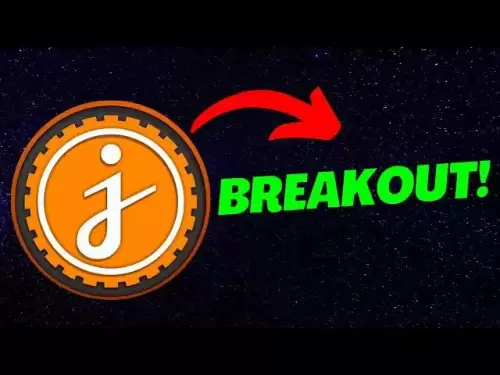-
 Bitcoin
Bitcoin $118,841.1054
1.02% -
 Ethereum
Ethereum $3,364.2689
7.44% -
 XRP
XRP $3.0337
3.93% -
 Tether USDt
Tether USDt $1.0004
0.04% -
 BNB
BNB $708.2059
2.49% -
 Solana
Solana $173.2385
5.74% -
 USDC
USDC $0.9999
-0.01% -
 Dogecoin
Dogecoin $0.2121
6.85% -
 TRON
TRON $0.3090
2.81% -
 Cardano
Cardano $0.7628
2.25% -
 Hyperliquid
Hyperliquid $46.8391
-2.08% -
 Stellar
Stellar $0.4537
0.15% -
 Sui
Sui $3.9529
-2.88% -
 Chainlink
Chainlink $16.6414
3.72% -
 Hedera
Hedera $0.2354
1.52% -
 Bitcoin Cash
Bitcoin Cash $499.1285
0.43% -
 Avalanche
Avalanche $22.6400
0.57% -
 Shiba Inu
Shiba Inu $0.0...01438
4.88% -
 UNUS SED LEO
UNUS SED LEO $8.8507
-0.64% -
 Toncoin
Toncoin $3.1498
2.35% -
 Litecoin
Litecoin $97.4954
1.21% -
 Polkadot
Polkadot $4.1541
1.50% -
 Monero
Monero $331.4406
-1.03% -
 Pepe
Pepe $0.0...01350
5.24% -
 Uniswap
Uniswap $8.9103
-5.01% -
 Bitget Token
Bitget Token $4.7540
4.51% -
 Dai
Dai $0.9999
-0.02% -
 Ethena USDe
Ethena USDe $1.0008
0.00% -
 Aave
Aave $322.3328
-1.63% -
 Bittensor
Bittensor $431.8026
-0.50%
Why did the SEC take a decade to approve a spot Bitcoin ETF?
After a decade of scrutiny, the SEC approved spot Bitcoin ETFs amid evolving market conditions and stronger investor protections.
Jul 11, 2025 at 06:07 am
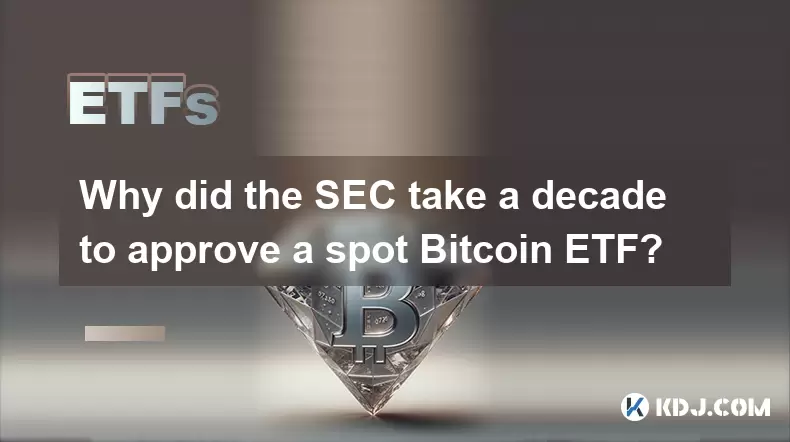
Regulatory Framework and Historical Context
The Securities and Exchange Commission (SEC) has long maintained a cautious approach to financial instruments tied to cryptocurrencies, particularly those that are not backed by physical assets or regulated commodities. The concept of a spot Bitcoin ETF—a fund that directly holds Bitcoin and trades on traditional exchanges—has been under review for over ten years due to the SEC’s mandate to protect investors and ensure market integrity.
Unlike futures-based ETFs, which track contracts rather than actual assets, spot ETFs expose investors directly to the underlying asset—in this case, Bitcoin. The SEC expressed concerns about potential market manipulation, custody risks, and lack of regulatory oversight in cryptocurrency exchanges, all of which contributed to delays in approving a spot Bitcoin ETF.
Market Manipulation and Transparency Issues
One of the primary reasons for the prolonged approval process was the SEC's concern regarding market manipulation within the cryptocurrency space. Bitcoin trading occurs across multiple unregulated exchanges globally, making it difficult to monitor and prevent illicit activities such as wash trading, spoofing, and pump-and-dump schemes.
The commission emphasized the need for comprehensive surveillance mechanisms before greenlighting any spot Bitcoin ETF. It required proof that there were sufficient safeguards in place to detect and deter manipulative practices. Additionally, transparency in pricing discovery remained a key issue, as Bitcoin prices often varied significantly between platforms without a centralized reference point.
Custody and Security Challenges
Another critical factor delaying the approval of a spot Bitcoin ETF was the lack of standardized custodial solutions for digital assets. Traditional ETFs rely on well-established custodians like banks or trust companies to securely hold underlying assets. However, when it comes to Bitcoin, the industry lacked a universally accepted and regulated custodian until relatively recently.
The SEC demanded robust infrastructure for storing and protecting digital assets, including cold storage solutions, insurance coverage, and operational redundancies. Until firms could demonstrate they could meet these standards consistently and transparently, the agency hesitated to approve ETFs that held actual Bitcoin.
Legal Battles and Repeated Applications
Over the past decade, several financial institutions attempted to launch spot Bitcoin ETFs, only to face rejections from the SEC. Notable among them were applications from the Winklevoss twins, Bitwise Asset Management, and VanEck, each of whom submitted detailed proposals outlining how their products would comply with existing regulations.
These repeated attempts led to legal challenges, with some applicants filing lawsuits against the SEC to compel approval. These cases argued that the regulator was applying inconsistent standards, especially since it had previously approved Bitcoin futures ETFs while rejecting spot versions. These legal tussles extended the timeline further, as the SEC reviewed its position in light of evolving market conditions and judicial scrutiny.
Evolving Market Conditions and Institutional Adoption
As the cryptocurrency ecosystem matured, institutional interest in Bitcoin grew substantially. Major financial players began offering crypto-related services, and established custodians started providing secure storage solutions for digital assets. Exchanges improved transparency and compliance measures, and the overall market capitalization of Bitcoin expanded significantly.
This shift helped alleviate some of the SEC’s concerns. The increased maturity of the crypto market, coupled with growing investor demand and stronger institutional backing, eventually paved the way for the approval of spot Bitcoin ETFs. However, this transformation did not occur overnight—it took nearly a decade of market evolution, regulatory dialogue, and technological advancement to reach this stage.
Frequently Asked Questions
- What is the difference between a spot Bitcoin ETF and a futures-based Bitcoin ETF?
A spot Bitcoin ETF directly holds Bitcoin as its underlying asset, allowing investors to gain exposure to the actual cryptocurrency. In contrast, a futures-based Bitcoin ETF invests in Bitcoin futures contracts, which derive value from expected future prices rather than the current price of Bitcoin. - Why did the SEC approve futures ETFs before spot ETFs?
The SEC viewed futures markets as more regulated and transparent compared to spot crypto exchanges. Futures contracts trade on regulated platforms like the CME, which provided a level of oversight the SEC found acceptable earlier than what existed in the spot market. - How did court rulings influence the SEC’s decision-making process?
Court decisions, particularly the ruling in favor of Grayscale in its lawsuit against the SEC, pressured the regulator to reconsider its stance. These rulings highlighted inconsistencies in how the SEC treated different types of crypto ETF applications, prompting a reevaluation of previous denials. - Are all spot Bitcoin ETF applications now approved?
No, not all applications have been approved. While several major issuers received approval after years of negotiation and revisions, the SEC continues to evaluate other filings. Approval depends on whether the applicant meets the agency’s stringent criteria related to investor protection and market integrity.
Disclaimer:info@kdj.com
The information provided is not trading advice. kdj.com does not assume any responsibility for any investments made based on the information provided in this article. Cryptocurrencies are highly volatile and it is highly recommended that you invest with caution after thorough research!
If you believe that the content used on this website infringes your copyright, please contact us immediately (info@kdj.com) and we will delete it promptly.
- Bitcoin Trading Volume in Q2 2025: A New York Minute
- 2025-07-17 14:30:12
- Bitcoin, SpacePay, and Your Cappuccino: The Future of Crypto Payments is Here!
- 2025-07-17 14:30:12
- Top Cryptos: Dogwifhat's Comeback, Arctic Pablo's Presale Adventure
- 2025-07-17 14:50:11
- Morgan vs. Peace: The US Mint's Silver Showdown
- 2025-07-17 14:50:11
- Ethereum Rising: Breaking $3400 – What's Fueling the Surge?
- 2025-07-17 14:55:11
- PENGU Price Watch: Resistance, Breakout, and What's Next for This Meme Coin
- 2025-07-17 14:55:11
Related knowledge
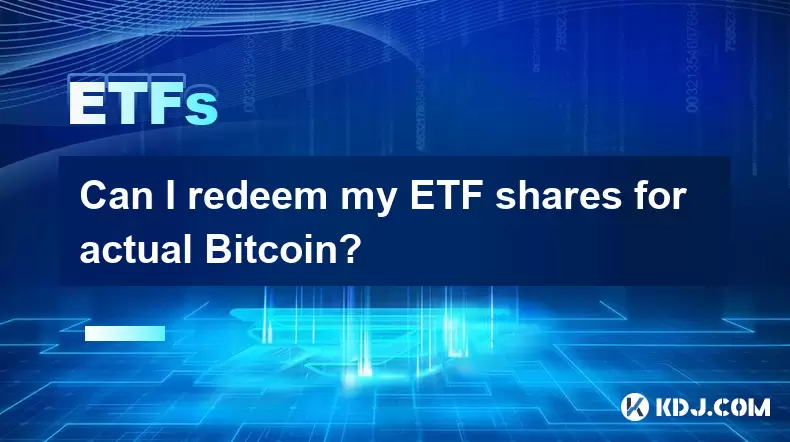
Can I redeem my ETF shares for actual Bitcoin?
Jul 17,2025 at 03:14pm
Understanding ETF Shares and Their Relation to BitcoinExchange-Traded Funds (ETFs) have become a popular investment vehicle for those looking to gain ...
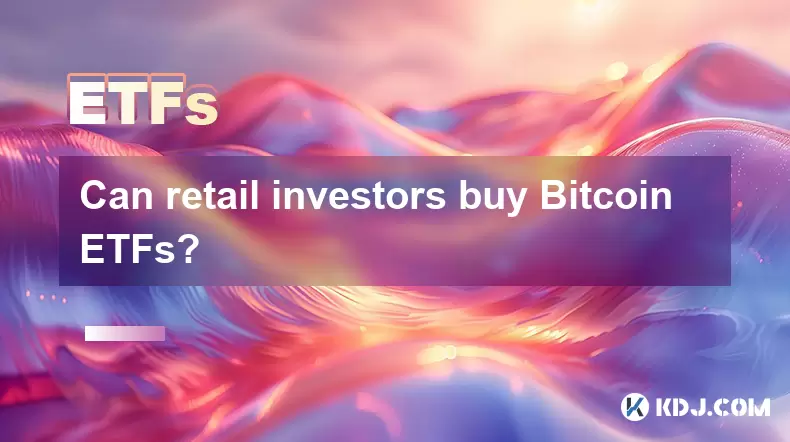
Can retail investors buy Bitcoin ETFs?
Jul 17,2025 at 12:50pm
What is a Bitcoin ETF?A Bitcoin Exchange-Traded Fund (ETF) is an investment vehicle that tracks the price of Bitcoin and trades on traditional stock e...

Are Bitcoin ETFs insured by FDIC or SIPC?
Jul 17,2025 at 03:07pm
What Are Bitcoin ETFs and How Do They Function?Bitcoin Exchange-Traded Funds (ETFs) are investment vehicles that track the price of Bitcoin while bein...
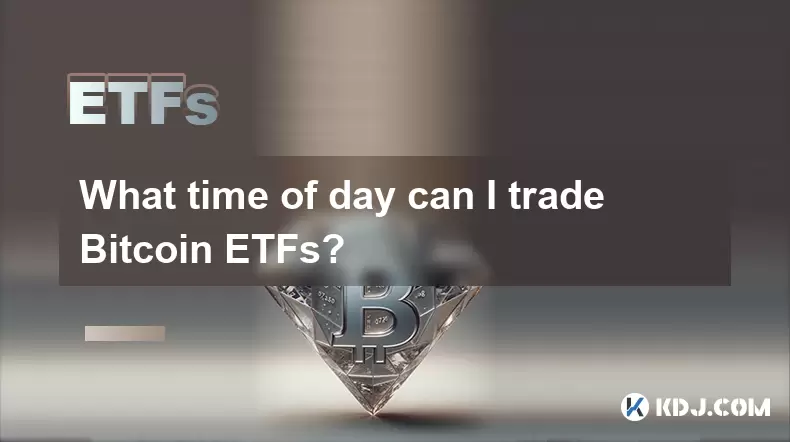
What time of day can I trade Bitcoin ETFs?
Jul 17,2025 at 02:42pm
Understanding Bitcoin ETFs and Their Trading HoursBitcoin Exchange-Traded Funds (ETFs) are financial instruments that track the price of Bitcoin (BTC)...
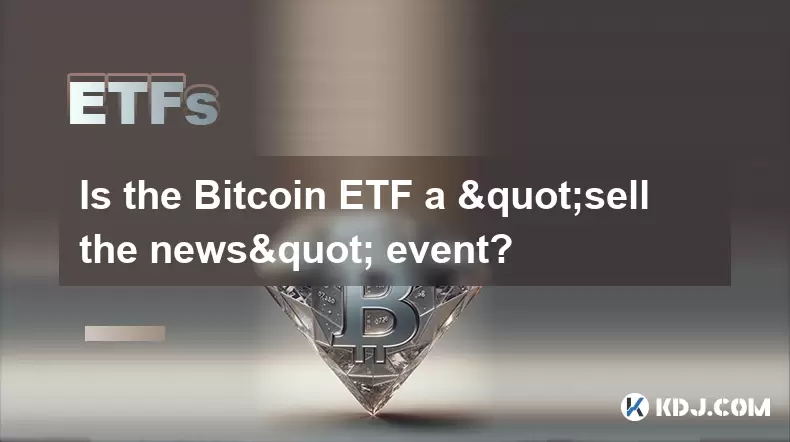
Is the Bitcoin ETF a "sell the news" event?
Jul 17,2025 at 12:28pm
What Is a Bitcoin ETF?A Bitcoin Exchange-Traded Fund (ETF) is an investment vehicle that tracks the price of Bitcoin and trades on traditional stock e...
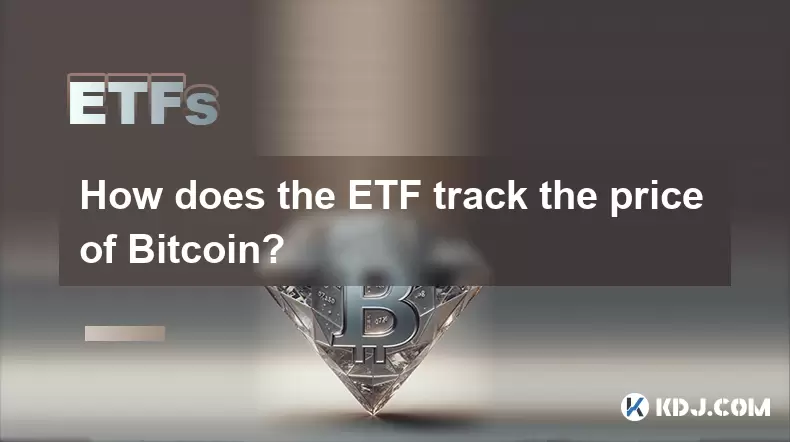
How does the ETF track the price of Bitcoin?
Jul 17,2025 at 03:21pm
What is a Bitcoin ETF?A Bitcoin Exchange-Traded Fund (ETF) is an investment vehicle that allows investors to gain exposure to Bitcoin without directly...

Can I redeem my ETF shares for actual Bitcoin?
Jul 17,2025 at 03:14pm
Understanding ETF Shares and Their Relation to BitcoinExchange-Traded Funds (ETFs) have become a popular investment vehicle for those looking to gain ...

Can retail investors buy Bitcoin ETFs?
Jul 17,2025 at 12:50pm
What is a Bitcoin ETF?A Bitcoin Exchange-Traded Fund (ETF) is an investment vehicle that tracks the price of Bitcoin and trades on traditional stock e...

Are Bitcoin ETFs insured by FDIC or SIPC?
Jul 17,2025 at 03:07pm
What Are Bitcoin ETFs and How Do They Function?Bitcoin Exchange-Traded Funds (ETFs) are investment vehicles that track the price of Bitcoin while bein...

What time of day can I trade Bitcoin ETFs?
Jul 17,2025 at 02:42pm
Understanding Bitcoin ETFs and Their Trading HoursBitcoin Exchange-Traded Funds (ETFs) are financial instruments that track the price of Bitcoin (BTC)...

Is the Bitcoin ETF a "sell the news" event?
Jul 17,2025 at 12:28pm
What Is a Bitcoin ETF?A Bitcoin Exchange-Traded Fund (ETF) is an investment vehicle that tracks the price of Bitcoin and trades on traditional stock e...

How does the ETF track the price of Bitcoin?
Jul 17,2025 at 03:21pm
What is a Bitcoin ETF?A Bitcoin Exchange-Traded Fund (ETF) is an investment vehicle that allows investors to gain exposure to Bitcoin without directly...
See all articles
























